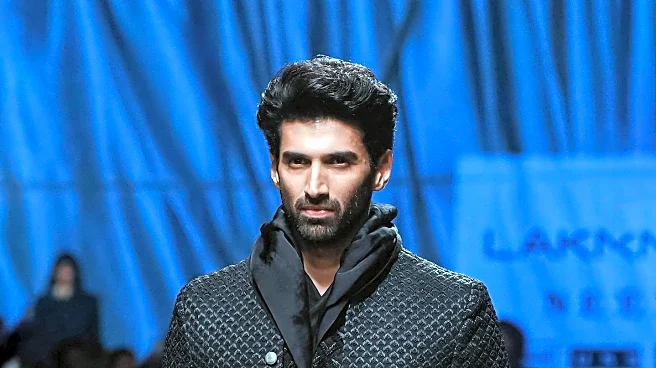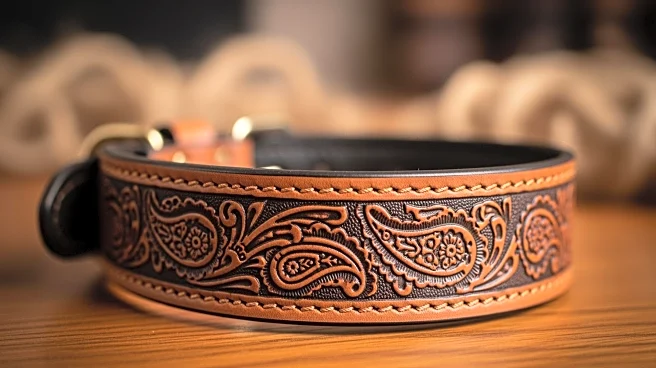What's Happening?
Lagos Fashion Week is emphasizing sustainable fashion by encouraging young designers to adopt responsible practices. The event, founded by Omoyemi Akerele in 2011, aims to showcase African creativity on the global stage and act as a catalyst for cultural
pride and sustainable systemic change. Designers are encouraged to rethink their choices at every stage of the creative process, starting with the materials they use. The event also features initiatives like the Swapshop, which allows consumers to exchange clothes they no longer wear, promoting sustainable consumption. Notable participants include Indo-Kenyan designer Ria Ana Sejpa of the brand Lilabare, who showcased outfits made from pineapple and banana fibers, as well as coffee grounds.
Why It's Important?
The emphasis on sustainability at Lagos Fashion Week highlights a growing trend in the fashion industry towards environmentally responsible practices. This shift is significant as the fashion industry is a major contributor to global greenhouse gas emissions and textile waste. By promoting sustainable practices, Lagos Fashion Week is not only fostering innovation among designers but also encouraging consumers to adopt more sustainable habits. This could lead to a reduction in overconsumption and textile waste, which are pressing environmental issues. The event's focus on African creativity also helps to elevate the continent's fashion industry on the global stage, potentially leading to increased economic opportunities for local designers.
What's Next?
Lagos Fashion Week's initiatives, such as the Green Access incubator program, are expected to continue supporting young designers in developing sustainable collections. As more designers and consumers embrace sustainable practices, the fashion industry may see a gradual shift towards more environmentally friendly production and consumption patterns. This could influence other fashion weeks and events globally to adopt similar practices, further promoting sustainability in the industry.
Beyond the Headlines
The push for sustainability at Lagos Fashion Week also raises important ethical considerations regarding the fashion industry's impact on the environment and society. By encouraging responsible practices, the event is addressing issues of overconsumption and waste, which are often overlooked in the pursuit of fashion trends. This focus on sustainability could lead to long-term cultural shifts in how fashion is produced and consumed, promoting a more ethical and environmentally conscious industry.
















